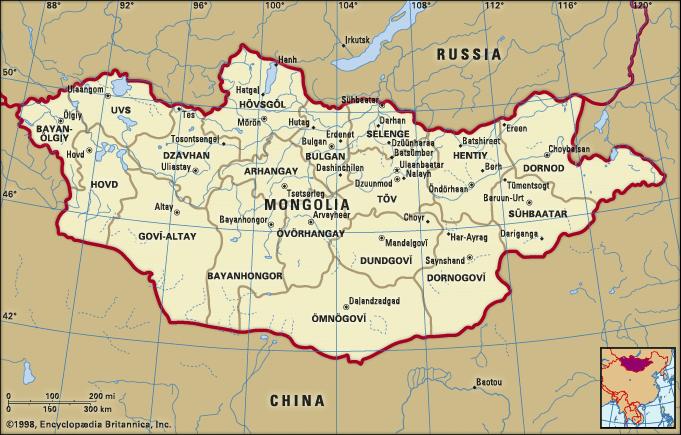
My name is Sue Choi, and I am a rising junior, majoring in Studio Art on a premedical track. I am of South Korean heritage, and grew up in California, Mongolia, Germany, and now, New Orleans. Being in New Orleans and at Tulane, I’ve particularly been impacted by the ways in which I’ve been challenged to think broader and more empathetically in regards to community engagement. On campus, I’m involved on the EBoard of the National Alliance on Mental Illness (NAMI) on Campus and the Minority Association of Premedical Students (MAPS). I am also in the process of starting a student organization, the Tulane Green Medicine Initiative, which seeks to promote sustainable healthcare practices locally and globally.
Growing up under physician parents who are greatly involved in public health issues, I have always had a great interest in and appreciation for public health research. This summer, thanks to this grant, I have the opportunity to work as a research intern for the Mongolian Health Initiative (MHI) in Ulaanbaatar, Mongolia, studying the risk of breast cancer among urban and rural Mongolian women and the prevention of tuberculosis (TB) infection among school-aged children. Mongolia is currently in a “transition stage” wherein both infectious and noninfectious diseases are a significant health burden, and thus, my research in Mongolia on TB and on breast cancer will uniquely allow me to study both infectious and noninfectious disease.
My internship aligns with the mission of the Newcomb College Institute (NCI) to educate women for leadership through research and community engagement, and to produce knowledge about and for women’s issues. I am committed to developing myself as a leader, as well as to seeking opportunities that empower other women to become leaders. I hope that going into this internship with my learning objectives in mind will allow me to cultivate myself and contribute to the project in a meaningful, intentional way.
My five learning objectives for this internship are:
- Obtain knowledge regarding breast cancer risk factors in rural and urban regions
- Obtain knowledge regarding tuberculosis infection in school-aged children, particularly in high-risk nations
- Learn and apply relevant research methodologies, and gain practical research skills
- Gain exposure to clinical research trials, and understand the protocol and methods that it requires
- Gain personal applications on what it means to be a woman leader in the STEM fields
According to the National Cancer Institute, ⅛ of women in the United States will be diagnosed with breast cancer during their lifetime. As the most common form of cancer among women across all ethnicities, it is a heavy burden on women’s health. As part of my internship with MHI, I will research external factors that play a role in breast carcinogenesis. MHI’s research focuses on pregnancy hormone concentrations among urban and nomadic Mongolian women, studying its role in breast cancer carcinogenesis. Because breast cancer rates are higher in urban regions than in rural regions and Mongolia is a rapidly urbanizing nation, Mongolia is a prime location to study the risk of breast cancer and its association with urban environments.
Breast cancer is a huge health risk to women globally, which, transitively, negatively impacts women’s opportunities in leadership. Thus, breast cancer research is not simply for the sake of medicine, but it is a fight for women’s basic right to health and opportunity, a right that NCI wholeheartedly fights for and supports. This research will not only benefit Mongolian women, but it will also impact the global community’s understanding and efforts to fight breast cancer and empower women to become global leaders.
In addition to studying breast cancer, I will assist in a major clinical trial on vitamin D supplementation for the prevention of TB infection among school-aged girls and boys. As of this January, incidence of TB among Mongolian school-aged children have quintupled since the previous World Health Organization estimates, and TB accounts for the highest mortality rate among infectious diseases in Mongolia. MHI’s focus on improving women’s and children’s health is meaningful to me, and it would be my privilege to specifically study and work to alleviate the health burdens of women and girls.

I am especially excited to advocate for women and children’s health in Mongolia, where I spent a majority of my childhood. I have a deep love for the culture and people of Mongolia, and as such, MHI’s research is very close and important to me. As I gain knowledge about breast cancer and TB prevention, I hope to integrate my understanding of Mongolian culture and my education from Tulane to further develop my advocacy for women and children’s health in Mongolia and globally. During my time at Tulane, I have developed a passion to approach all issues, including clinical research, through a perspective of empathy and human-centered design. Contributing to MHI’s research using this perspective, I hope to gain a deeper understanding of the real human audience whom clinical research benefits and a growth in character as a human and future physician.
To prepare for this internship, I will be preparing my personal knowledge database by reading and organizing existing research on TB and breast cancer incidence. Additionally, I will be in contact with my internship supervisor and research team, and will fulfill any preparatory work that is recommended. By interning with the MHI, I hope to contribute to research that will better the global healthcare community’s understanding of TB and breast cancer causes and treatments.
